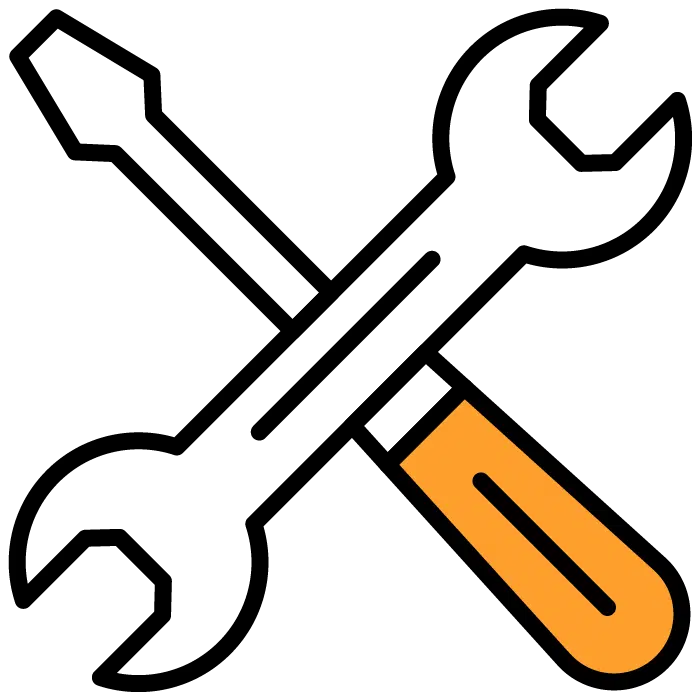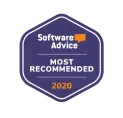Want to hire someone who fits into your team on day one? The right culture fit interview questions let you find that perfect fit. But there’s a trick to doing it right.
To make it work, you absolutely have to ask questions that dig deep — not questions candidates can find online that morning and then parrot the “right” answers.
Cultural fit isn’t about hiring candidates who have the same hobbies, interests, or personality as your employees. Instead, it’s selecting hires who “just get it,” and who your existing team will be glad to go to work with every day.
It can be tricky to come up with the questions that find that perfect hand-in-glove match, so we’ve created this list of 200 interview questions to ask when hiring.
Screen Your Candidates With Proven Pre-Employment Tests
The Hire Talent qualifies your candidates for you, so you can hire the best, faster. We’ll screen and qualify candidates based on various traits — including problem solving, honesty, and interpersonal skills — to help you find your next great culture fit.
What is a Cultural Fit Interview Question?
A cultural fit interview question is designed to identify candidates whose values, beliefs, and behavior mesh perfectly with your company’s established culture. They’re often a mix of situational and behavioral questions, inviting candidates to prove themselves in tricky workplace situations.
You’ll want to ask a range of cultural fit questions to get a good sense of how a candidate would handle different situations, from interpersonal conflicts to facing change.
Common Cultural Fit Interview Questions
Looking for some effective cultural interview questions that apply for all sorts of roles and workplaces? We’ve handpicked the best for you to copy, paste, and use to screen your candidates.
- How do you describe your ideal work environment?
- Can you tell me about a time when you had to work with someone with a different work style than yours? How did you handle it?
- What is your favorite company culture and why?
- How do you approach working with people who have different cultural backgrounds than yours?
- Can you tell me about a time when you faced a difficult challenge at work and how you overcame it?
- How do you handle conflicts with your coworkers?
- How do you prioritize tasks and projects when you have multiple assignments to complete?
- Can you tell me about a time when you had to adapt to a new environment or culture? How did you handle it?
- How do you stay motivated and engaged in your work?
- How do you balance your personal and professional life?
- What motivates you to come to work every day?
- How do you handle criticism from your coworkers or supervisors?
- How do you collaborate with team members who have different working styles than you?
- Can you tell me about a time when you had to take ownership of a project or task that wasn't explicitly assigned to you?
- How do you prioritize building relationships with coworkers?
- How do you handle difficult feedback from clients or customers?
- How do you handle a high-pressure work environment?
- Can you give an example of a time when you had to work outside of your job description or expertise?
- How do you balance the needs of the company with the needs of your team?
- How do you maintain a positive attitude when facing challenges or setbacks at work?
- How do you deal with a team member who is not meeting expectations?
- Can you tell me about a time when you had to navigate an ethical dilemma at work?
- How do you communicate your ideas effectively to a team or group?
- How do you balance the needs of individual team members with the needs of the team as a whole?
- How do you stay up-to-date with industry trends and changes?
- Can you give an example of a time when you had to improvise or be creative to solve a problem?
- How do you handle a project that isn't going according to plan?
- How do you deal with ambiguity or uncertainty in your work?
- Can you tell me about a time when you had to make a difficult decision that affected the entire team?
- How do you handle a disagreement with a coworker or supervisor?
- How do you approach networking and building professional relationships?
- How do you balance the needs of work and personal life?
- Can you give an example of a time when you had to adapt to a new technology or tool at work?
- How do you handle a difficult or upset customer or client?
- How do you ensure your work is accurate and error-free?
- How do you stay organized and manage your time effectively?
- Can you tell me about a time when you had to work with a difficult or challenging team member?
- How do you approach feedback and criticism from coworkers or supervisors?
- How do you handle changes or unexpected events in your work?
- How do you prioritize your workload and manage competing deadlines?
- Can you give an example of a time when you had to work with a tight deadline?
- How do you ensure that your work meets the needs of your clients or customers?
- How do you approach professional development and learning opportunities?
- Can you tell me about a time when you had to take a risk to achieve a goal?
- How do you handle conflict or disagreement within a team?
- How do you approach collaboration with colleagues or coworkers?
- How do you balance the needs of individual team members with the needs of the project or task at hand?
- Can you give an example of a time when you had to work with a diverse group of people?
- How do you ensure that your work aligns with company values and goals?
- How do you approach delegation and assigning tasks to team members?
- Can you tell me about a time when you had to communicate a difficult or sensitive message to coworkers or team members?
- How do you handle a mistake or error in your work?
- How do you approach prioritizing and managing your personal workload?
- How do you balance working independently with working collaboratively?
- Can you give an example of a time when you had to work with a team
- How do you approach setting goals and achieving them in your work?
- Can you tell me about a time when you had to provide feedback to a coworker or team member?
- How do you approach multitasking and managing multiple projects at once?
- How do you ensure that your work aligns with the company's mission and vision?
- Can you give an example of a time when you had to handle confidential information or sensitive data?
- How do you approach building and maintaining relationships with clients or customers?
- How do you handle a situation where a client or customer is dissatisfied with your work?
- Can you tell me about a time when you had to negotiate with a coworker, team member, or supervisor?
- How do you approach problem-solving in your work?
- How do you handle a situation where you have conflicting priorities or deadlines?
- Can you give an example of a time when you had to mentor or coach a coworker or team member?
- How do you approach decision-making in your work?
- How do you handle a situation where you don't have all the information you need to make a decision?
- Can you tell me about a time when you had to work with a team to achieve a common goal?
- How do you handle a situation where a coworker or team member isn't pulling their weight?
- How do you approach innovation and creativity in your work?
- Can you give an example of a time when you had to think outside the box to solve a problem?
- How do you handle a situation where you disagree with a coworker or supervisor?
- How do you approach continuous improvement and professional development in your work?
- Can you tell me about a time when you had to adapt to a new role or responsibility?
- How do you handle a situation where you don't know how to do something?
- How do you approach risk management in your work?
- Can you give an example of a time when you had to take a calculated risk?
- How do you handle a situation where you have conflicting opinions with a coworker or team member?
- How do you approach leadership and influence in your work?
- Can you tell me about a time when you had to motivate or inspire a team or group?
- How do you handle a situation where you are feeling overwhelmed or stressed?
- How do you approach teamwork and collaboration in your work?
- Can you give an example of a time when you had to work with a team to solve a complex problem?
- How do you handle a situation where a coworker or team member is being difficult or uncooperative?
- How do you approach goal-setting and planning in your work?
- Can you tell me about a time when you had to make a difficult decision that impacted the team or company?
- How do you handle a situation where you are receiving conflicting instructions or feedback from multiple sources?
- How do you approach conflict resolution in your work?
- Can you give an example of a time when you had to mediate a conflict between two coworkers or team members?
- How do you handle a situation where you don't have all the resources or support you need to complete a task?
- How do you approach communication with coworkers or team members who have different communication styles than yours?
- Can you tell me about a time when you had to manage a project from start to finish?
- How do you handle a situation where you are experiencing burnout or feeling uninspired in your work?
- How do you approach feedback and performance evaluations in your work?
- How do you approach feedback and performance evaluations in your work?
- Can you give an example of a time when you had to manage a difficult stakeholder?
- How do you handle a situation where a coworker or team member is not meeting deadlines or expectations?
- How do you approach conflict resolution with clients or customers?
- Can you tell me about a time when you had to navigate a cultural misunderstanding at work?
- How do you approach building and maintaining relationships with stakeholders?
- Can you give an example of a time when you had to lead a project or team to achieve a specific goal?
- How do you handle a situation where you are not meeting your own personal goals or expectations?
- How do you approach building trust and credibility with coworkers or clients?
- Can you tell me about a time when you had to handle a difficult or uncomfortable conversation with a coworker or team member?
- How do you approach risk assessment and mitigation in your work?
- How do you handle a situation where you don't have enough information or resources to complete a task?
- Can you give an example of a time when you had to handle a crisis or emergency situation at work?
- How do you approach building a strong team dynamic within your work environment?
- How do you handle a situation where a coworker or team member is not adhering to company policies or standards?
- Can you tell me about a time when you had to handle a delicate or sensitive situation with a client or customer?
- How do you approach building and maintaining relationships with vendors or suppliers?
- Can you give an example of a time when you had to handle a high-stress situation at work?
- How do you handle a situation where you are not meeting your team's expectations or needs?
- How do you approach building and maintaining relationships with industry leaders and peers?
- Can you tell me about a time when you had to handle a situation where you had limited resources or budget?
- How do you approach data analysis and decision-making in your work?
- How do you handle a situation where you are experiencing conflict or tension within your team?
- Can you give an example of a time when you had to handle a situation where there were legal or ethical considerations at play?
- How do you approach building and maintaining relationships with regulatory agencies or governing bodies?
- How do you handle a situation where you are experiencing a lack of motivation or passion for your work?
- How do you approach managing and delegating tasks to team members?
- Can you tell me about a time when you had to handle a situation where there were conflicting interests or priorities at play?
- How do you approach building and maintaining relationships with customers or clients from different backgrounds or cultures?
- Can you give an example of a time when you had to handle a situation where there was a breakdown in communication within your team or organization?
- How do you approach managing and mitigating project risks?
- How do you handle a situation where you are experiencing burnout or feeling overwhelmed in your work?
- How do you approach building and maintaining relationships with competitors in your industry?
- Can you tell me about a time when you had to handle a situation where there were logistical challenges or limitations at play?
- How do you approach building and maintaining relationships with investors or stakeholders?
- How do you handle a situation where you are experiencing a lack of support or resources from your supervisor or leadership?
- Can you give an example of a time when you had to handle a situation where there were conflicting personalities or work styles within your team?
- How do you approach managing and resolving conflicts within your team or organization?
- How do you approach building and maintaining relationships with the media and public?
- Can you tell me about a time when you had to handle a situation where you had to work with a team remotely?
- How do you approach building and maintaining relationships with community groups and non-profit organizations?
- How do you handle a situation where you are experiencing communication challenges with clients or customers who speak a different language?
- Can you give an example of a time when you had to handle a situation where you had to make a difficult ethical decision?
- How do you approach managing and prioritizing your team's workload?
- How do you handle a situation where you are experiencing a lack of resources or budget for a project?
- How do you approach building and maintaining relationships with government officials and policymakers?
- Can you tell me about a time when you had to handle a situation where there was a lack of alignment between your team and other departments within your organization?
- How do you approach managing and resolving conflicts with vendors or suppliers?
- How do you handle a situation where you are experiencing a lack of clarity or direction from your supervisor or leadership?
- How do you approach building and maintaining relationships with industry influencers and thought leaders?
- Can you give an example of a time when you had to handle a situation where you had to manage multiple projects simultaneously?
- How do you approach managing and mitigating risks related to cybersecurity or data privacy?
- How do you handle a situation where you are experiencing a lack of trust or respect from a coworker or team member?
- How do you approach building and maintaining relationships with customers or clients who have diverse needs or preferences?
- Can you tell me about a time when you had to handle a situation where you had to adapt to a new technology or software?
- How do you approach building and maintaining relationships with international clients or customers?
- How do you handle a situation where you are experiencing a lack of recognition or appreciation from your supervisor or leadership?
- How do you approach managing and mitigating risks related to environmental sustainability or social responsibility?
- Can you give an example of a time when you had to handle a situation where you had to balance competing priorities or demands?
- How do you approach building and maintaining relationships with industry associations and trade organizations?
- How do you handle a situation where you are experiencing a lack of clarity or alignment with the company's mission or vision?
- How do you approach managing and mitigating risks related to supply chain or logistics challenges?
- Can you tell me about a time when you had to handle a situation where you had to work with a team across different time zones or geographies?
- How do you approach building and maintaining relationships with investors or funders?
- How do you handle a situation where you are experiencing a lack of collaboration or cooperation within your team?
- How do you approach managing and mitigating risks related to regulatory compliance or legal issues?
- Can you give an example of a time when you had to handle a situation where you had to manage a team with limited resources or budget?
- How do you approach building and maintaining relationships with customers or clients who have unique or niche requirements?
- How do you handle a situation where you are experiencing a lack of engagement or motivation from your team or coworkers?
- How do you approach managing and mitigating risks related to natural disasters or emergencies?
- Can you tell me about a time when you had to handle a situation where you had to navigate a complex stakeholder environment?
- How do you approach building and maintaining relationships with industry analysts or researchers?
- How do you handle a situation where you are experiencing a lack of accountability or ownership within your team?
- How do you approach managing and mitigating risks related to economic fluctuations or market changes?
- Can you tell me about a time when you had to handle a situation where you had to communicate with stakeholders who had different priorities or expectations?
- How do you approach building and maintaining relationships with employees from diverse backgrounds?
- How do you handle a situation where you are experiencing a lack of alignment or understanding with coworkers or team members from different departments?
- How do you approach managing and mitigating risks related to workplace safety or health hazards?
- Can you give an example of a time when you had to handle a situation where you had to work with a team with conflicting personalities or values?
- How do you approach building and maintaining relationships with clients or customers who are experiencing financial hardship or challenges?
- How do you handle a situation where you are experiencing a lack of clarity or direction from clients or customers?
- How do you approach managing and mitigating risks related to data breaches or cyber attacks?
- Can you tell me about a time when you had to handle a situation where you had to manage a project with limited time or resources?
- How do you approach building and maintaining relationships with employees who work remotely or off-site?
- How do you handle a situation where you are experiencing a lack of support or resources from the company's leadership or management team?
- How do you approach managing and mitigating risks related to geopolitical events or international conflicts?
- Can you give an example of a time when you had to handle a situation where you had to communicate with stakeholders who had conflicting interests or priorities?
- How do you approach building and maintaining relationships with employees who are experiencing personal or professional challenges?
- How do you handle a situation where you are experiencing a lack of alignment or understanding with clients or customers from different cultures or backgrounds?
- How do you approach managing and mitigating risks related to natural resource scarcity or depletion?
- Can you tell me about a time when you had to handle a situation where you had to work with a team with diverse communication styles or preferences?
- How do you approach building and maintaining relationships with industry regulators or government agencies?
- How do you handle a situation where you are experiencing a lack of accountability or ownership from clients or customers?
- How do you approach managing and mitigating risks related to climate change or environmental degradation?
- Can you give an example of a time when you had to handle a situation where you had to balance conflicting needs or expectations from stakeholders?
- How do you approach building and maintaining relationships with employees who have different working styles or preferences?
- How do you handle a situation where you are experiencing a lack of alignment or understanding with clients or customers from different geographic regions or markets?
- How do you approach managing and mitigating risks related to labor disputes or workforce challenges?
- Can you tell me about a time when you had to handle a situation where you had to work with a team with limited communication or language skills?
- How do you approach building and maintaining relationships with shareholders or investors?
- How do you handle a situation where you are experiencing a lack of engagement or motivation from clients or customers?
- How do you approach managing and mitigating risks related to political instability or social unrest?
- Can you give an example of a time when you had to handle a situation where you had to manage a team with limited experience or expertise?
- How do you approach building and maintaining relationships with employees who have different cultural or religious beliefs?
- How do you handle a situation where you are experiencing a lack of alignment or understanding with stakeholders from different industries or sectors?
Here’s Why Those Cultural Fit Questions Work
All the cultural fit questions above are designed to dig into how your candidate acts in various work situations — not what they’d do under ideal conditions.
We’ve avoided questions that can have an obvious “right” answer. Instead, these are open-ended company culture interview questions that spark discussion about personality and approach to teamwork.
It’s important to use specific answers rather than “gut feeling” to avoid unconscious bias. Otherwise, hiring for cultural fit can leave you with people who are just like everyone else already working at your company. That can lead to problems like groupthink and hiring based on shared interests rather than performance.
How to Use the Questions Above
Of course you’d never ask all 200 questions above in your interviews. You’ll pick and choose the ones that make most sense for the role, the team, and the company culture as a whole.
We recommend choosing 3–5 questions that address key qualities or values. For instance, you could choose one question relating to honesty in the workplace, another about problem solving, and a third relating to client communication skills.
If a candidate only gives a brief or general response, be prepared to follow up by pressing them for an example.
How to Create Custom Culture Fit Interview Questions
Specific questions yield specific results. So—
What if you want to create your own custom culture fit interview questions? We highly recommend using ChatGPT — but with one caveat. You’ve got to customize the prompts you’ll use, or you’ll get generic questions that don’t fit anybody’s culture.
1. Assess
Your first step is to assess your company’s culture. A quick and easy way is to select five stakeholders in your company (such as the team manager for the role) and ask them to list the attributes most important for the company’s culture. You can then use these to list the key personality traits of the perfect hire.
2. Create
Write questions tailored specifically to digging into the traits your team needs most, using ChatGPT to help. Here’s an example prompt:
ChatGPT Prompt
Please write 3 culture fit questions to find someone who’s cheerful, responsive to feedback, hard working, fast at coming up with solutions to problems, and alert to inefficiencies in processes.
ChatGPT will respond with a list of questions, like this:
- How do you typically respond to feedback, whether positive or negative? Can you provide an example of a time when you received constructive criticism and how you incorporated that feedback into your work?
- Describe a situation where you had to come up with a creative solution to a problem that had a tight deadline. How did you approach the problem, and what steps did you take to ensure that you were able to deliver a solution on time?
- Can you give an example of a time when you noticed an inefficiency in a process at work? How did you address the issue, and what steps did you take to improve the process?
If you’re not happy with the initial set of team-fit interview questions ChatGPT provides, adjust your prompts to customize your questions.
To take the hard work out of this process, let The Hire Talent do it all for you, with our Discovered – Performance Hiring Software with AI features.
We can create a customized suite of hiring materials for you, including laser-focused job descriptions and job ads, candidate scorecards, and materials for employee referral campaigns, candidate outreach, assessment tests, career pages, and more — in just minutes.
Why Is Cultural Fit Important?
Cultural fit is important for both companies and candidates. As a company, you want to hire candidates who contribute in a productive and positive way and get along well with colleagues and clients alike. Your candidates also want your company to be a good cultural fit for their personal values.
What’s an Example of Good Cultural Fit?
An example of good cultural fit is a candidate with strong environmental values joining a company known for its eco-friendly approach. The company has a new hire who’s dedicated to their mission and who helps inspire colleagues. The new hire feels good about their work and is loyal to their workplace.
What’s an Example of Poor Cultural Fit?
An example of poor cultural fit is a candidate with a “9-5” mentality joining a startup in an industry known for long hours. The new hire won’t be happy if they’re expected to stay late on a regular basis — and the team will be negatively impacted if their new colleague isn’t pulling their weight.
Culture Fit vs Culture Add
Culture fit is about hiring people who fit well into your existing work culture. Culture add goes further, looking for candidates who will bring something new and different to your team. This can help your team challenge the status quo, appeal to a broader range of customers, or develop fresh ideas.
Summary
Choosing the right culture fit interview questions helps you hire people who’ll make a positive difference in your workplace.
Don’t just ask off-the-cuff questions or pick candidates based on a “gut feeling.” Instead, use our carefully written questions to dig into what really matters when building an effective team culture.

















